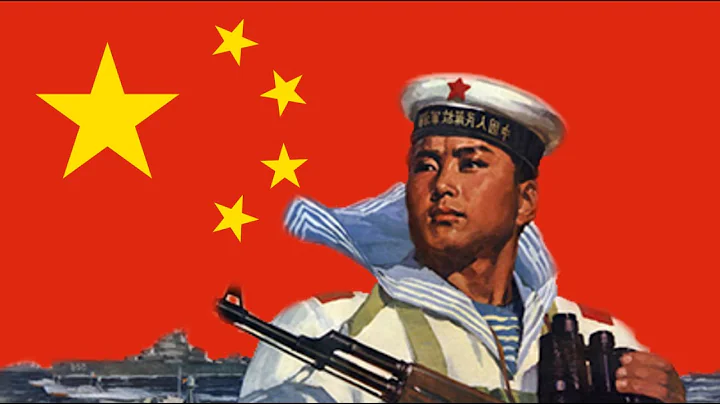's Si Lingfeng County during the Anti -Japanese War was Anhui Si County HT TML2, Wuhe , Lingya , Fengyang several counties. At that time, the battle at Xiaodaizhuang in Wuhe was the first major victory of the New Fourth Army in opening up the Siwu Lingfeng County Anti-Japanese Base Area.

General Cheng Jun
In late May 1941, Cheng Jun, commander of the fifth brigade of the second division of the New Fourth Army, and political commissar Zhao Qimin, under orders from the military headquarters, led the 14th and 15th regiments to set off from Gaoliangjian and cross Hongze Lake westward. They drove to the Bancheng area and decided that the 14th Regiment would stay in the Si'nan area, while the 15th Regiment would continue to move westward and take on the task of opening up the Siwu Lingfeng area.
The area west of the Tuo River and north of the Hui River has complex terrain, intertwined water networks, and little room for maneuver on land.

General Zhao Qimin
The enemies in this area include the Japanese army, the puppet army, Kuomintang die-hards, as well as bandits and reactionary Taoist organizations. They burned, killed, looted, and committed all kinds of evil. They attacked our anti-Japanese base areas many times and attacked our troops and local armed forces. At that time, they caused the greatest harm and the most hated enemies by the masses were the two groups of enemies: one was the Ding Shoutang Department of the puppet army entrenched in Haocheng, and the other was the activities. In the Tuoxi area, Li Chengwu's tribe has dual identities of bandits and puppet soldiers. Both groups of enemies have four to five hundred people and have certain combat effectiveness. Based on the enemy's situation, Commander Rao decided to destroy Li Chengwu's department first, and then wait for an opportunity to eliminate Ding Shoutang's department.
One day, during the storm, Captain Rao received four pieces of intelligence about Li Chengwu's whereabouts, but none of them were very accurate. In the evening, an old ferryman in his sixties hurried from the west of Tuohe River in the rain to report to Captain Rao that Li Chengwu had brought people to Xiaodaizhuang and wanted to spend the night there. Captain Rao then asked people to bring in the first battalion commander Li Musheng, the instructor Jiang Zizhou and the county magistrate Lu Zhenqiu for discussion.
At this moment, the soldiers sent out for reconnaissance also came back, and they met to prove that the situation was indeed true. Captain Rao immediately informed the troops to eat quickly and prepare for departure, and asked County Magistrate Lu to quickly prepare the boats. It was more than nine o'clock in the evening, and the rain was still falling. Captain Rao and County Magistrate Lu led the first battalion, reconnaissance platoon and county armed forces and set off from the Fanji area. The soldiers wore raincoats, raincloths on their heads, and white towels on their arms, marching in the wind and rain. It was dark and the roads were slippery, making the march extremely difficult. When they arrived at the Tuo River, County Magistrate Lu had sent people to find more than a dozen boats, and all the people quickly crossed the Tuo River.
At about four o'clock in the morning, the troops rushed to hide near Xiaodaizhuang, and the reconnaissance platoon immediately went into the village to investigate the situation. After a while, the comrades of the reconnaissance platoon came back to report that the enemy was sleeping soundly and unsuspecting, and the enemy sentry had been killed.
With a burst of charge sounds, troops rushed towards the village from all directions, and the enemy suddenly became chaotic. Some tried to resist, but were hacked to death by us; many more were taken captive in a daze before they had time to put on their clothes. A group of enemies in Zhuangxi retreated to a large courtyard and tried to resist. They were surrounded by a company of soldiers. The soldiers shouted: "If you don't surrender, I will throw grenades to kill you!" The enemy was frightened and obediently left the yard. After being thrown out, dozens of people surrendered with their hands raised.
In another large courtyard, the Second Company captured Li Chengwu's "strategist" Jiang Tiyun who was preparing to escape in disguise.
The battle was over in less than an hour. In this battle, nearly 400 enemies were killed or captured, and more than 20 war horses and more than 300 weapons were captured. We also captured all four of the enemy's machine guns. Li Chengwu escaped with only about 20 people.
The battle at Xiaodaizhuang was the first battle fought by the New Fourth Army in establishing the Siwu Lingfeng base area. It intimidates the enemy and expands the political influence of our army. From then on, the Japanese, puppets, recalcitrants and bandits in this area became frightened whenever they mentioned the 15th Regiment.
The article is selected from Urban Suzhou Network





![[Eng CC] Battle Song of a Strong Force / 强军战歌 [Chinese Military Song] - DayDayNews](https://i.ytimg.com/vi/r56a5ToDEYI/hq720.jpg?sqp=-oaymwEcCNAFEJQDSFXyq4qpAw4IARUAAIhCGAFwAcABBg==&rs=AOn4CLB69ONJn1YcPoLqMBn9i6uTsbbC_w)


![[Eng CC] When that day comes/当那一天来临 [Chinese Military Song] - DayDayNews](https://i.ytimg.com/vi/VbmjkLBybvk/hq720.jpg?sqp=-oaymwEcCNAFEJQDSFXyq4qpAw4IARUAAIhCGAFwAcABBg==&rs=AOn4CLDgM29TVJ-DHDckL5i2PWD9Qt-JIQ)

![[Eng Sub] Soul of the Chinese Army / 中国军魂 (Chinese Song) - DayDayNews](https://i.ytimg.com/vi/yQkfa8A5Zbo/hq720.jpg?sqp=-oaymwEcCNAFEJQDSFXyq4qpAw4IARUAAIhCGAFwAcABBg==&rs=AOn4CLAbOBSrb_gXHMyGYeRF9I5V15mJ4A)










